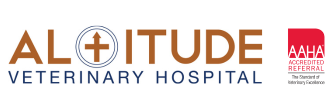Tips for Road Trip Travel with your Pets

Some of us are settling in for the season but others are still actively making travel plans this year! For those snowbirds or adventurous spirits traveling year-round with your pets, it will help you to know that there are very serious life-threatening diseases near and far that are avoidable and preventable if you know what you’re getting into! Here are a few common diseases we want you to know about.
- Lyme Disease is a very prevalent tick-borne disease seen more common on the East Coast. The disease is transmitted by certain ticks and can range from mild chronic symptoms to life-threatening multisystemic organ damage. You can prevent the disease by providing sufficient flea and tick control and if you plan to move outside of Wyoming it is common to vaccinate your dogs against the disease. Beware people can get the same disease from ticks too! (you can’t get the disease from your dog).
- Leptospirosis Disease is prevalent in the Midwest, East, and Southwest. This is a bacteria found in top water and is transmitted by small rodent wildlife through urine. Leptospirosis disease commonly causes life-threatening liver or kidney disease. This disease is preventable by limiting your pet from drinking from lakes/streams/ponds/rivers or if you plan to move you can also vaccinate your pet for this disease. Beware this disease is very deadly for people as well!
- Heartworm Disease is very prevalent all over the United States but most common in the Southern states. This disease only occurs in dogs and cats (people don’t get this disease) and is transmitted by mosquitoes. Regular heartworm prevention is essential to prevent the disease.
- Valley Fever is a fungal disease found in the soil around Arizona and other Southwestern states. The disease ranges in forms from mild asymptomatic infections to severe multiorgan life-threatening diseases. Dogs are at the highest risk as they are more likely to be exposed to the spores in the soil as they dig and sniff in the dirt. There is no vaccine for this disease and people can get this disease when they garden. You and your pet can avoid this disease by not allowing your pet access to “dirty” areas.
- Fleas can cause severe allergies for people and pets. Fortunately for many in Wyoming fleas are sparse, but those from warmer climate states know that it’s a whole different ball game in surrounding states that don’t have a hard freeze. So that your pet doesn’t bring home a following of fleas, we recommend regular Flea and Tick control (at Altitude we recommend Simparica for dogs and Parastar for cats).
Making your pets more comfortable and 1st Aid while you travel:
- Anxiety: Road trips can be stressful for your pets, and anxiety medication may help your pet! See your veterinarian if you are interested.
- Nausea: Some pets are nauseous with road travel, over the counter Dramamine can help or more potent medication can be prescribed through your veterinarian.
- Diarrhea: Some pets get diarrhea traveling, we recommend not feeding excessive treats and you can consider a more gentle gastro-intestinal prescription diet to avoid diarrhea. If you know your dog gets diarrhea easily you may also consider a probiotic or even a prescription anti-diarrhea medication.
- Allergies: Benadryl is handy to have on hand in case of an allergy.
Record keeping:
- Medical History: Please travel with a printout of your pet's vaccine history in case you need to make a veterinary visit or choose to board or groom your pet along the way.
- Microchip: We recommend that all pets are microchipped in the unfortunate event that you were to lose your pet traveling. After all, we have seen a few delightful reunions with pets and owners even after years of mysterious absence!
Most of our clients are traveling interstate, but for those of you traveling by air or overseas with pets note that there are more specific travel guidelines and airport regulations to know about. Each country and airline has specific requirements regarding state or federal health inspections, pet identification, vaccine documentation, etc. which all require timely preparedness. See the USDA Aphis Pet Travel website for more details (https://www.aphis.usda.gov/aphis/pet-travel).
